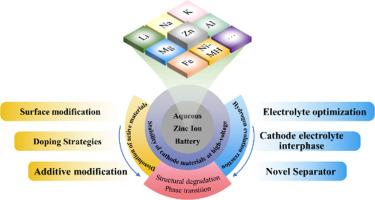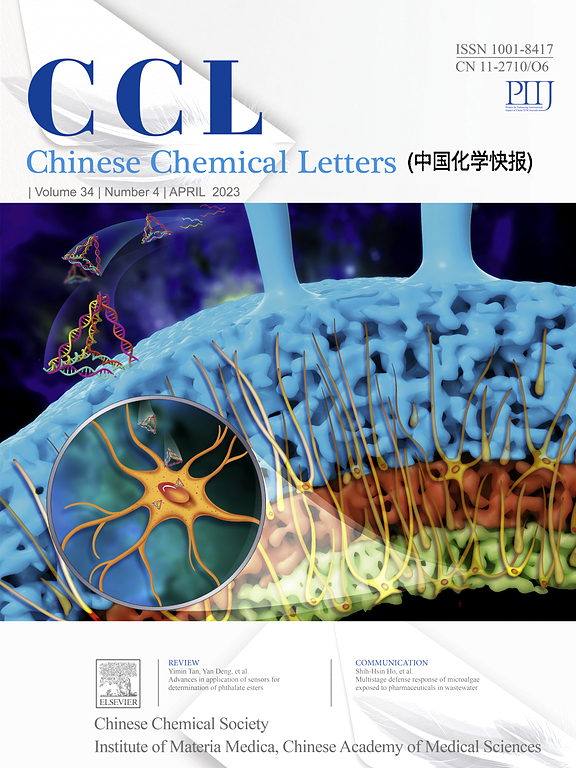Mini review: Strategies for enhancing stability of high-voltage cathode materials in aqueous zinc-ion batteries
IF 9.4
1区 化学
Q1 CHEMISTRY, MULTIDISCIPLINARY
引用次数: 0
Abstract
As battery technology evolves and demand for efficient energy storage solutions, aqueous zinc ion batteries (AZIBs) have garnered significant attention due to their safety and environmental benefits. However, the stability of cathode materials under high-voltage conditions remains a critical challenge in improving its energy density. This review systematically explores the failure mechanisms of high-voltage cathode materials in AZIBs, including hydrogen evolution reaction, phase transformation and dissolution phenomena. To address these challenges, we propose a range of advanced strategies aimed at improving the stability of cathode materials. These strategies include surface coating and doping techniques designed to fortify the surface properties and structure integrity of the cathode materials under high-voltage conditions. Additionally, we emphasize the importance of designing antioxidant electrolytes, with a focus on understanding and optimizing electrolyte decomposition mechanisms. The review also highlights the significance of modifying conductive agents and employing innovative separators to further enhance the stability of AZIBs. By integrating these cutting-edge approaches, this review anticipates substantial advancements in the stability of high-voltage cathode materials, paving the way for the broader application and development of AZIBs in energy storage.

小评论:提高锌离子水电池中高压阴极材料稳定性的策略
随着电池技术的发展和对高效储能解决方案的需求,锌离子水电池(AZIBs)因其安全和环保优势而备受关注。然而,正极材料在高压条件下的稳定性仍然是提高其能量密度的关键挑战。本综述系统地探讨了 AZIBs 中高压阴极材料的失效机制,包括氢演化反应、相变和溶解现象。为了应对这些挑战,我们提出了一系列旨在提高阴极材料稳定性的先进策略。这些策略包括表面涂层和掺杂技术,旨在强化阴极材料在高压条件下的表面特性和结构完整性。此外,我们还强调了设计抗氧化电解质的重要性,重点是了解和优化电解质的分解机制。本综述还强调了改性导电剂和采用创新分离器进一步提高 AZIBs 稳定性的重要性。通过整合这些前沿方法,本综述预计高压阴极材料的稳定性将取得实质性进展,从而为 AZIBs 在储能领域的更广泛应用和发展铺平道路。
本文章由计算机程序翻译,如有差异,请以英文原文为准。
求助全文
约1分钟内获得全文
求助全文
来源期刊

Chinese Chemical Letters
化学-化学综合
CiteScore
14.10
自引率
15.40%
发文量
8969
审稿时长
1.6 months
期刊介绍:
Chinese Chemical Letters (CCL) (ISSN 1001-8417) was founded in July 1990. The journal publishes preliminary accounts in the whole field of chemistry, including inorganic chemistry, organic chemistry, analytical chemistry, physical chemistry, polymer chemistry, applied chemistry, etc.Chinese Chemical Letters does not accept articles previously published or scheduled to be published. To verify originality, your article may be checked by the originality detection service CrossCheck.
 求助内容:
求助内容: 应助结果提醒方式:
应助结果提醒方式:


